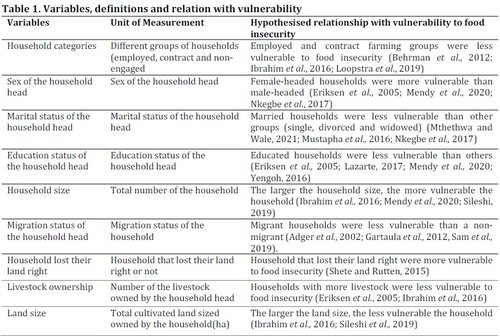Large-scale agricultural investments and household vulnerability to food insecurity: Evidence from Kenya, Madagascar and Mozambique
Authors: Wegayehu Fitawek and Sheryl L Hendriks
Published: 2022
Source: African Journal on Land Policy and Geospatial Sciences
This study, which used Land Matrix data, set out to estimate the role of large-scale agricultural investments (LSAIs) on household vulnerability to food insecurity in sample communities in Kenya, Madagascar and Mozambique based on their adoption of coping strategies. The study used secondary data from the three countries (Kenya, Madagascar and Mozambique). The findings of the study revealed that households with members engaged in contract agreements with LSAIs adopted fewer coping strategies and were less food insecure than other households. Contract farming households seemed to cope better during food shortages (based on the marginal effects of the model). In comparison, households with members employed by a LSAI adopted more coping strategies than contract farming households. This might be because households with employed members had smaller numbers of livestock and smaller landholdings. Many LSAIs jobs were seasonal and low-paid, making the household less able to cope with food shortages. The study confirmed that households with more educated heads, smaller households, larger plot sizes and more livestock were less likely to slip into deeper levels of food insecurity should they face adversity. Most employed household heads had migrated from nearby districts. The job opportunities helped migrant workers mediate food insecurity. These results suggest that governments hosting LSAIs can promote plantation and contract farming that protect the land ownership of smallholder farmers, transfer good agricultural practices to improve agricultural production, household incomes and food security of smallholder farmers.
Download the paper here or view online here.

